Providing your location allows us to show you nearby locations and doctors.
Man survives 10 years with pancreatic cancer and continues to give back
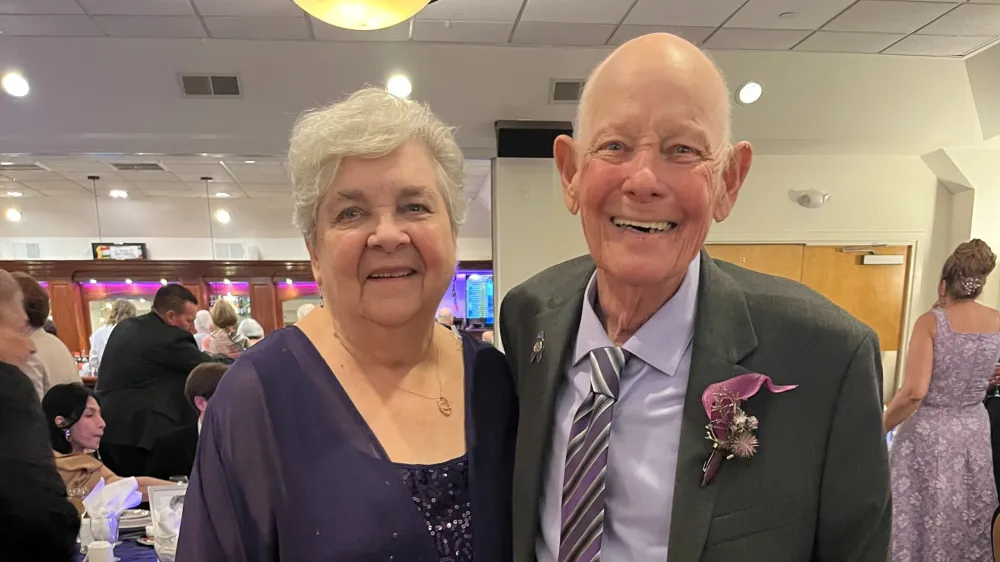
06/11/2025
Racing for early detection of pancreatic cancer: Mark’s journey from stage 4 diagnosis to car shows and cancer research inspires hope
Mark Schlegel was feeling healthy in 2015. No pain, no symptoms, no reason to think anything was wrong. But a small anomaly in his bloodwork during a routine checkup led his primary care physician to monitor him closely over a few months. In February 2015, an abdominal CT scan — initially ordered because of a suspected thyroid issue — revealed something unexpected.
“Mark, you have pancreatic cancer,” his doctor told him.
While most people with pancreatic cancer have months to live, Mark, miraculously, is still here, 10 years later.
Deciding to fight pancreatic cancer
On the drive home with his wife, Pauline, Mark said they were “planning my funeral.”
They had lost friends to pancreatic cancer and had seen the devastation it could cause. The outlook wasn’t good. He had stage 4 pancreatic cancer, and the disease had already spread to his liver and lymph nodes. His care team estimated he had 18 months to live.
Instead of giving up, Mark made a decision: “I could give up, or fight. I chose to fight.”
Living with stage 4 pancreatic cancer
Mark began chemotherapy right away under the care of Dr. Richard Frank, a medical oncologist specializing in pancreatic cancer at Norwalk Hospital’s Whittingham Cancer Center. He is also the system chief for clinical and translational cancer research for Nuvance Health, part of Northwell Health.
The first year and a half was a whirlwind of treatments, tests and soul-searching. Mark began checking items off his bucket list — taking long-overdue vacations with his family, spending time in Vermont where he had happy childhood memories, and finding comfort in his lifelong love of sports cars.
“I prioritized what was important: my family, racecars and helping other people with pancreatic cancer,” Mark said.
He bought his dream car — a Shelby Daytona Coupe — and made regular trips to Lime Rock Park, a racing circuit and favorite place since he was a kid. He also started searching for ways to give back.
Related content: Woman with advanced pancreatic cancer continues to ‘fight the good fight’
Rallye For Pancreatic Cancer raises awareness and funds for research
In April 2017, Mark and Pauline launched Rallye For Pancreatic Cancer, Inc., an annual car show that raises money for pancreatic cancer research at Norwalk Hospital. In a first-of-its-kind study at the time, Dr. Frank, Tammy Lo, an advanced practice registered nurse (APRN), and a team of researchers launched a study to establish an early-detection test for pancreatic cancer. Learn more about pancreatic screening cancer study.
Around this time, Mark’s sister was also diagnosed with stage 4 pancreatic cancer and died less than four months later.
“Seeing my sister suffer and losing her so quickly was devastating,” Mark said. “It gave me even more drive to support research and early detection efforts.”
Rallye For Pancreatic Cancer continues today, bringing together car enthusiasts and raising critical funds for pancreatic cancer research.
“Mark is completely dedicated to helping us establish an early detection test for pancreatic cancer,” said Dr. Frank, who is also the Nancy J. and Eugene P. Beard Endowed Chair in Cancer Research. “It speaks volumes of his character and what a selfless, generous person he is.”
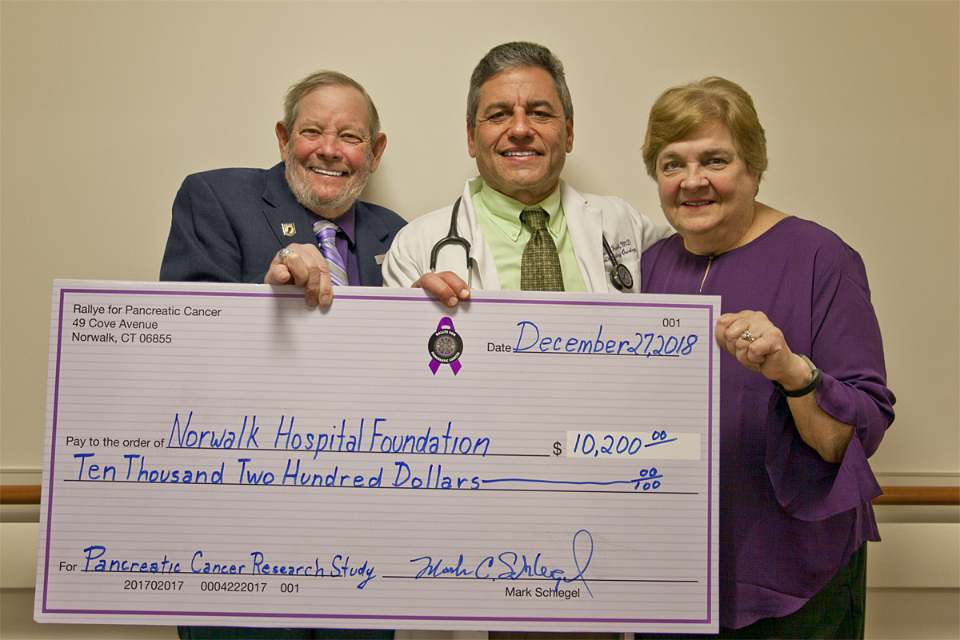
Exploring treatments for pancreatic cancer, including novel radiation therapy
Mark was diagnosed with a rare type of pancreatic cancer called acinar cell carcinoma (ACC), which tends to grow slower than the more common pancreatic ductal adenocarcinoma (PDAC).
In 2019, genetic testing revealed he had a BRCA2 mutation, which not only increased his risk for pancreatic cancer but also opened the door to a targeted treatment: a PARP inhibitor.
“It was a big boost,” Mark said.
He continued with oral chemotherapy and the PARP inhibitor for two years.
When tumors started growing again in 2022 and 2023, Mark underwent novel radiation therapy under the care of Dr. Philip Gilbo, system chief of radiation oncology at Nuvance Health, part of Northwell Health.
“The radiation took a toll, but it was worth it because it got the tumors under control,” Mark said.
Over the last 10 years, Mark has tried nearly every available option: chemotherapy, radiation, targeted therapies, even immunotherapy, which he stopped due to severe side effects. Despite the hardships, he has stayed focused on his family, his passions and the mission to help others with pancreatic cancer.
Family, hope and purpose keep Mark going despite pancreatic cancer
Mark continues to receive care from Dr. Frank and Dr. Gilbo and is exploring new treatment options as they become available. He has spent more than 60 years on the water and is still captain of the Norwalk Seaport Association’s Sheffield Island Ferry. He loves time with his wife, children and grandchildren — especially celebrating their milestones.
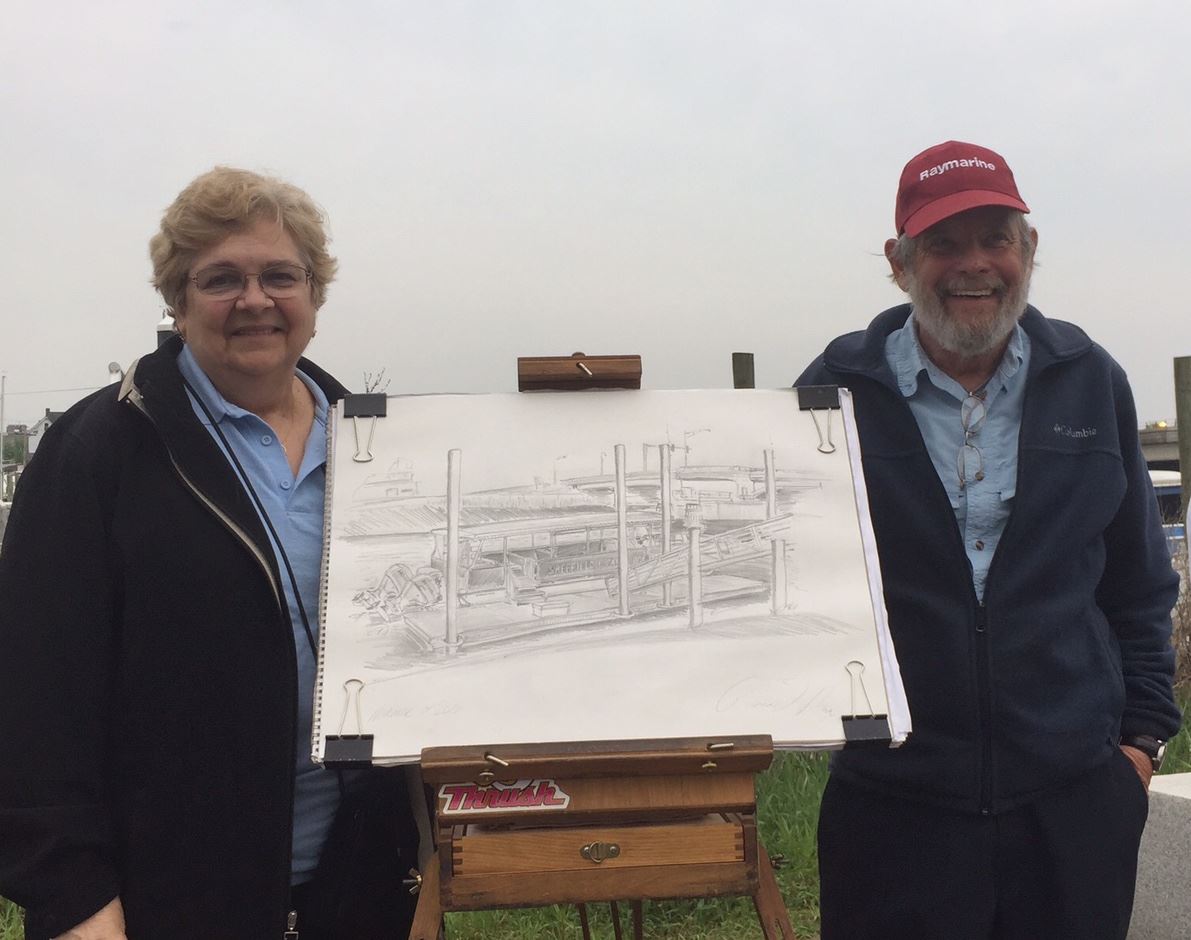
“I’m very proud of my family — they are incredible,” Mark said.
His next goal? Live long enough to watch his grandchildren graduate from college next year.
Even on difficult days, Mark says he still gets up in the morning with hope and a plan for the day.
“I want to help establish an early detection test for pancreatic cancer,” he said. “That’s what keeps me going.”
10 years of surviving pancreatic cancer
In May 2025, more than 100 friends, family members and Rallye supporters gathered to celebrate Mark’s 10-year milestone.
“I wanted to have a party as a way of saying thanks to everyone who supported me for the last decade,” Mark said. “It has been 10 years of compassion, caring and keeping my butt alive.”
The event included special recognition for Dr. Frank and Valarie Solis, a medical oncology nurse supervisor at the Whittingham Cancer Center.
“They have been a big part of my life,” Mark said. “Sometimes, I see my oncology nurses more than my family.”
Watch Mark’s 10-year anniversary celebration and special messages from family.
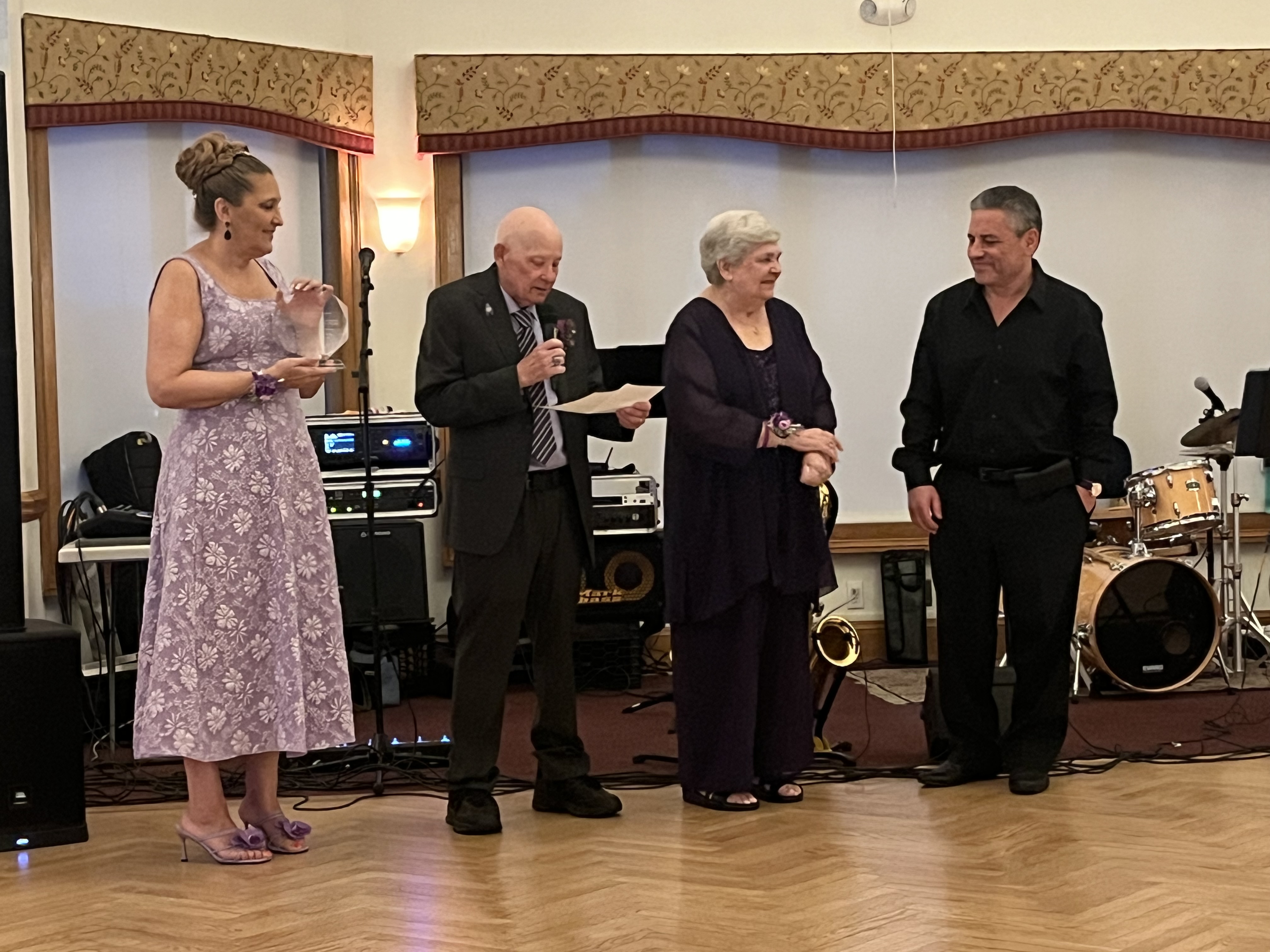
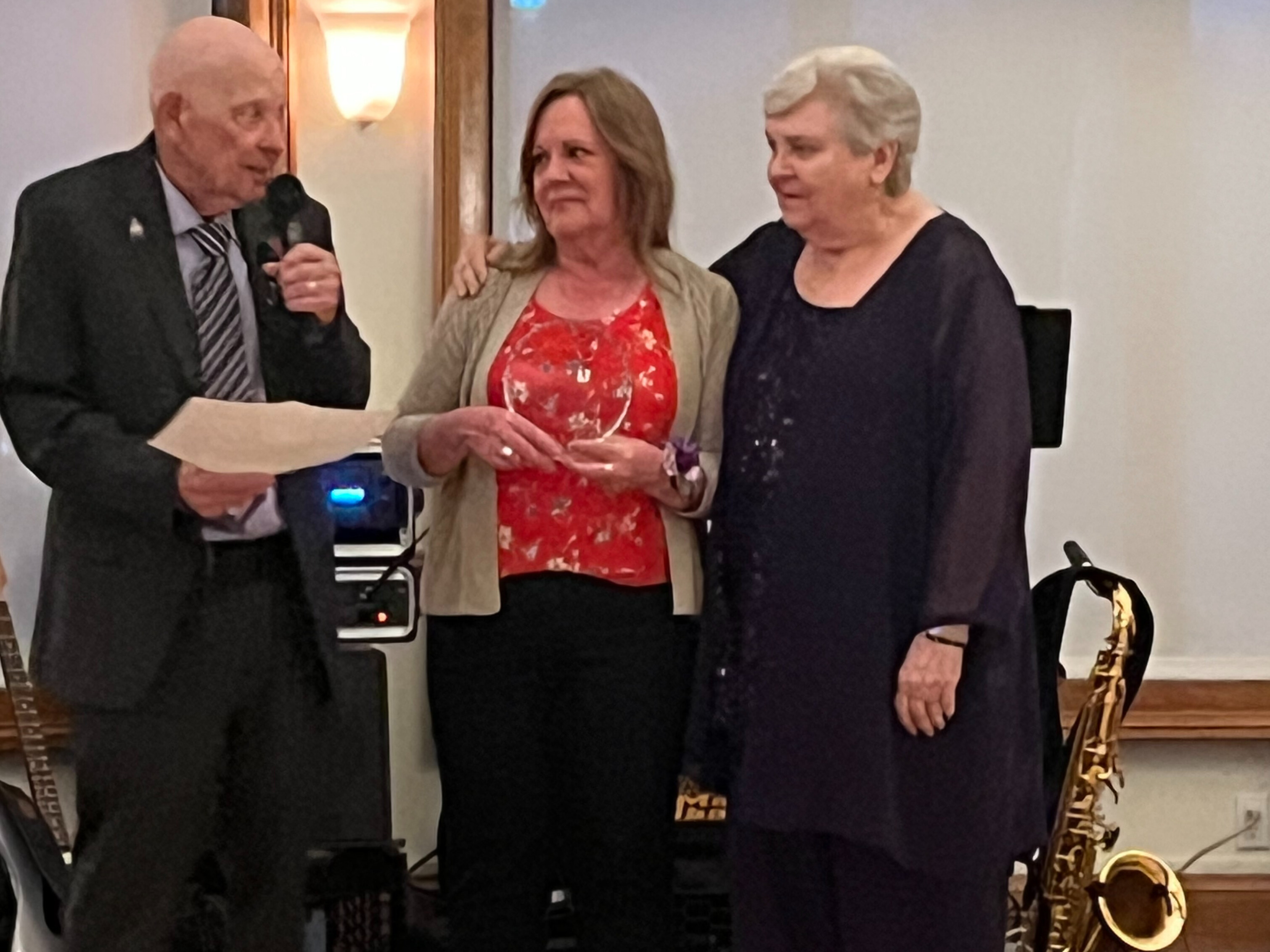
Be aware of pancreatic cancer symptoms and risks
Pancreatic cancer is often called a “silent” disease because it typically doesn’t cause symptoms until it’s advanced and difficult to treat. That’s why the survival rate is unfortunately dismal in most cases. Pancreatic cancer symptoms are also common for other medical conditions, so it can be difficult to diagnose. Signs of pancreatic cancer include:
- Jaundice (yellowing of the skin or eyes)
- Abdominal or back pain
- Unexplained weight loss
- Loss of appetite
- New-onset diabetes after age 50
- Fatigue
- Light-colored stools or dark urine
Pay attention to potential warning signs of pancreatic cancer, especially if you have any of the following risk factors:
- Family history of pancreatic cancer
- Certain inherited gene mutations, such as BRCA2
- Aged 65 and older
- Chronic pancreatitis
- Type 2 diabetes
- Obesity
- Smoke
‘Hanging in there’ and looking forward to a future of more lives saved from pancreatic cancer
Mark’s story is one of extraordinary resilience. He has survived when the odds were against him and continues to live with purpose, hope and generosity.
“Keep hanging in there; keep hope alive,” Mark said. “There are always treatments on the horizon and people who truly care to help you.”
Disclaimer: Outcomes from cancer vary from person to person. No individual results should be seen as typical.